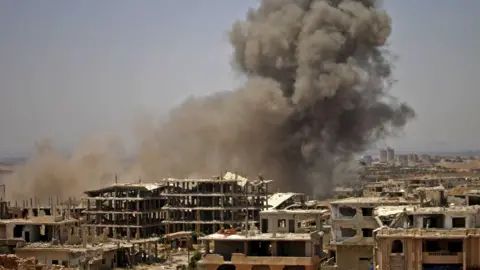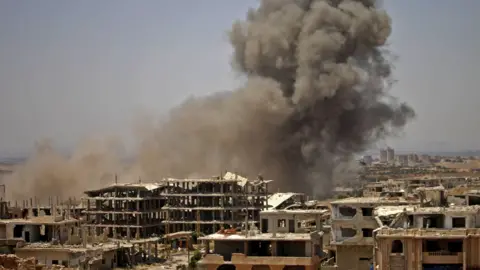
Syria remains silent on any direct military retaliation following the latest Israeli airstrike that reportedly targeted a suspected Iranian base near Damascus. While tensions in the Middle East are running high, past patterns suggest that a full-scale Syrian response is unlikely—though not impossible.
Historically, Syria has limited its reaction to Israeli airstrikes to official condemnations and diplomatic protests, often raising the issue at the United Nations or with regional allies. Direct military engagement with Israel has been rare, largely due to the Syrian military’s weakened state following over a decade of civil war and internal instability. Syria’s air defense systems, mostly outdated Soviet-era technology, have been ineffective in preventing repeated Israeli strikes.
Israel, on the other hand, has conducted hundreds of air operations over Syrian territory in the past decade, mostly targeting Iranian military infrastructure, weapons convoys to Hezbollah, and other proxy assets. Its strategy is often aimed at preemptively neutralizing any threats before they reach Israeli borders.
In many cases, when there is a response, it usually comes not from the Syrian military itself, but from Iranian-backed militias operating within Syrian borders. Groups like Hezbollah, Liwa Fatemiyoun, or Kataib Hezbollah have occasionally launched limited rocket or drone attacks following Israeli strikes, particularly in southern Syria or near the Golan Heights. However, these responses are generally symbolic and do not escalate into wider conflict.
Iran’s role in this dynamic is critical. Tehran has invested heavily in building a military foothold in Syria, and any significant damage to Iranian assets might trigger a response through proxies rather than the Syrian state. But such actions are carefully calibrated to avoid open war with Israel, especially given ongoing economic and political turmoil in both Iran and Syria.
Additionally, Russia’s presence in Syria plays a subtle but important role. Moscow, a key ally of Syrian President Bashar al-Assad, has often acted behind the scenes to de-escalate tensions between Israel and Syria. Although Russia rarely intervenes directly, it has strategic interest in preventing a broader regional conflict on Syrian soil, especially one that could draw in Iran, the U.S., or Turkey.
Given this context, Syria is expected to follow its usual path—issue official condemnation, possibly allow a proxy response, and strengthen air defenses near strategic locations like Damascus and Homs. Full-scale retaliation is unlikely unless Syrian or Iranian commanders were killed in the strike, or if the attack was unusually aggressive in scope.
In conclusion, while emotions on the ground may be high and calls for retaliation strong in pro-government media, Syria’s actual options are limited. Its military capacity, regional alliances, and economic constraints make direct confrontation with Israel a dangerous gamble. The more realistic scenario is a limited, delayed, and indirect response, keeping tensions simmering but avoiding outright escalation.

